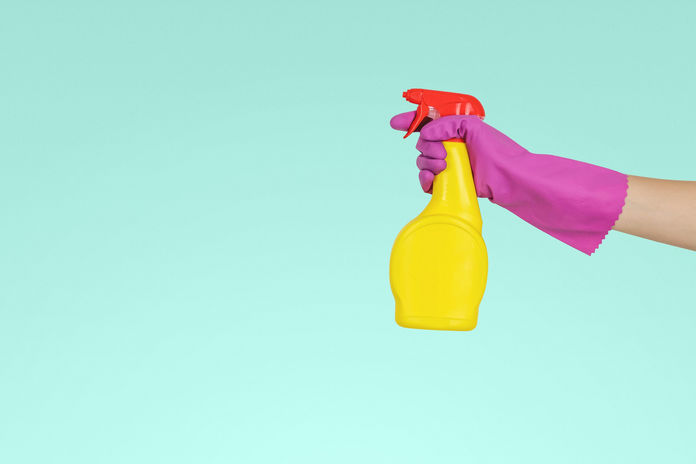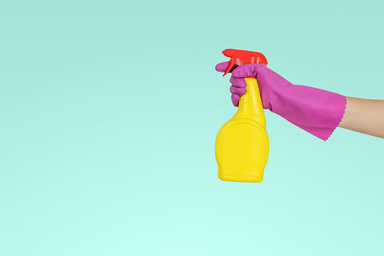*Warning, spoilers ahead*
I spent a large portion of my weekend binge-watching the recent Netflix series “Maid.” The ten-episode mini-series was initially just a random selection, but soon became a heart-wrenching top show of the year for me. “Maid” is inspired by Stephanie Land’s novel of the same name, in which she recounts her experiences working as a hired maid following the end of an abusive relationship.
“Maid” follows the story of Alex, a 25-year-old single mother played by Margaret Qualley. Within the opening scenes of the first episode, we get a sense of the situation Alex is in. She sneaks out of bed, quietly gathering a small stash of belongings. She grabs her young daughter, Maddy, and heads out the door. Alex and Maddy then speed away in their station wagon, leaving in the dust an angry man.
We find out later that Maddy’s father, played by Nick Robinson, is an alcoholic and has a history of emotionally abusing Alex. Fearing for herself and her daughter’s lives, Alex decides to take charge, though she doesn’t realize what she is in for once she leaves relative financial stability.
Alex doesn’t have a lot of options for support. Her friends are also her ex’s friends. Her estranged father (played by Billy Burke) has a new family of his own and is weirdly close with her ex. Her mother (played by Qualley’s actual mother, Andi MacDowell) is a flighty hippy with a string of unreliable and abusive relationships in tow. Forced to seek help, Alex and Maddy eventually land at a domestic violence shelter, and from there begin to carve out their freedom.
With no real marketable skills, Alex takes a job working at Value Maids, a cleaning service that serves several wealthy people around the Pacific Northwest setting. From cleaning toilets to hoarders’ homes, Alex gets an inside look at the lives of people who seem to have it all, such as recently divorced lawyer Regina (played by Anika Noni Rose). A passionate writer, she eventually starts to write the stories of her housekeeping experiences, leading to an eventual way out via a college scholarship.
The show highlights the pitfalls of the American welfare and legal systems as well as the many forms that domestic violence can come in. At one point, Maddy’s father sues Alex for custody, at a time where Alex is completely unprepared and lawyerless. The dialogue in this scene is literally the lawyer and judge going back and worth saying “legal, legal, legal” repeatedly, which represents how inaccessible and confusing this process can be, especially when relying strictly on what the law says as opposed to what actually goes on within a home.
There are many moments within the series that are excruciatingly frustrating to watch, as Alex keeps getting beat down by various obstacles. Rude employers, lack of quality daycare, unhealthy living conditions, and the blame from others around her for why things have gone so wrong. Alex has been most affected by emotional abuse, as opposed to physical harm, which makes it much harder to prove what she’s been suffering to both the law and the people around her. It’s also important to note that it takes a while for Alex herself to admit she’s a victim of domestic violence, despite having the guts to leave in the first place. This showcases the immense amount of stigma around these situations and really, how unprepared and unforgiving our systems are for dealing with these traumas.
Initially, I had some reservations, as the show centers on a straight white girl experiencing poverty. Alex herself seems to acknowledge this several times throughout the series, mishearing the words of people (specifically those who work in social services) as saying she’s white trash and a disappointment. While this show is based on a real-life story, I think it does go along with the trope that these stories only get heard when there is a white person behind them. It’s interesting that, for example, the main rich woman that Alex cleans for is a Black woman, and flips the script a bit. However, I would say that this series, and the original book’s success, would look different if it were written by or about a Black, Latinx, Indigenous, or Queer person.
“Maid” did a beautiful job of portraying Alex’s hardships and her triumphs. By the end, after sitting through so many regrettable decisions and small victories, you do really feel connected to her. There were so many times where I had to take a big pause because it got to be too much, but come the finale you see how much Alex has grown and has worked to take control of her and her daughter’s destinies. I felt proud of her journey and there were definitely a few tears shed.


